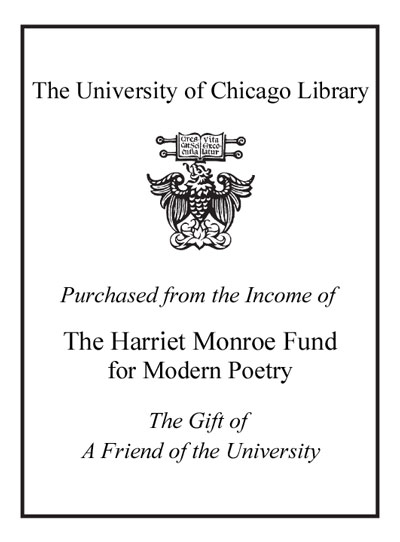Allen Tate : the modern mind and the discovery of enduring love /
Saved in:
| Author / Creator: | Glass, John V., III, author. |
|---|---|
| Imprint: | Washington, D.C. : The Catholic University of America Press, [2016] |
| Description: | xvii, 372 pages ; 24 cm |
| Language: | English |
| Subject: | |
| Format: | Print Book |
| URL for this record: | http://pi.lib.uchicago.edu/1001/cat/bib/10819646 |
| Summary: | This study reconsiders and reassesses the work of Allen Tate as a poet whose themes and expression place him among the most studied and canonical Modernists of the last century. Allen Tate (1899?1979), a former Poet Laureate of the US, although generally regarded during his lifetime as one of the twentieth century's preeminent literary critics and men of letters, has been largely overlooked by critics in the years since his death. John V. Glass III rectifies this by tracing the development of Tate's thought and verse from his early years as a student at Vanderbilt in the 1920s through his final terza-rima sequence completed in the 1950s. Tate's poetry in the intervening years charts the course of an American modernist who brings to bear on the problems of his age the unique perspective of a southerner, one who refuses either to accept sentimentality or to repudiate the past in his search for a solution to the dissociation of sensibility.<br> <br> Beginning with his early devotion to Art itself, followed by his effort to replace the primacy of Art with that of History, Tate's poetry dramatizes his gradual movement?one that is first public and intellectual, and then private and spiritual?toward acceptance of the central spiritual tradition of Western Civilization. By focusing on the relationship between Tate himself and the speakers in his poems, and on the relationship between those speakers and readers who like the poet, John V. Glass III helps the reader find themselves drawn into universally apprehensible experience. The course of Tate's own thought, frequently presented as being at a remove from common experience, proves not merely accessible, but also a model for those who, like Tate himself, seek to understand the fractured nature of Modernity and to discover an alternative to it in a traditional conception of Being. |
|---|---|
| Item Description: | Based on the author's Ph. D. dissertation (University of Mississippi, 2009). |
| Physical Description: | xvii, 372 pages ; 24 cm |
| Bibliography: | Includes bibliographical references and indexes. |
| ISBN: | 9780813228631 0813228638 |

